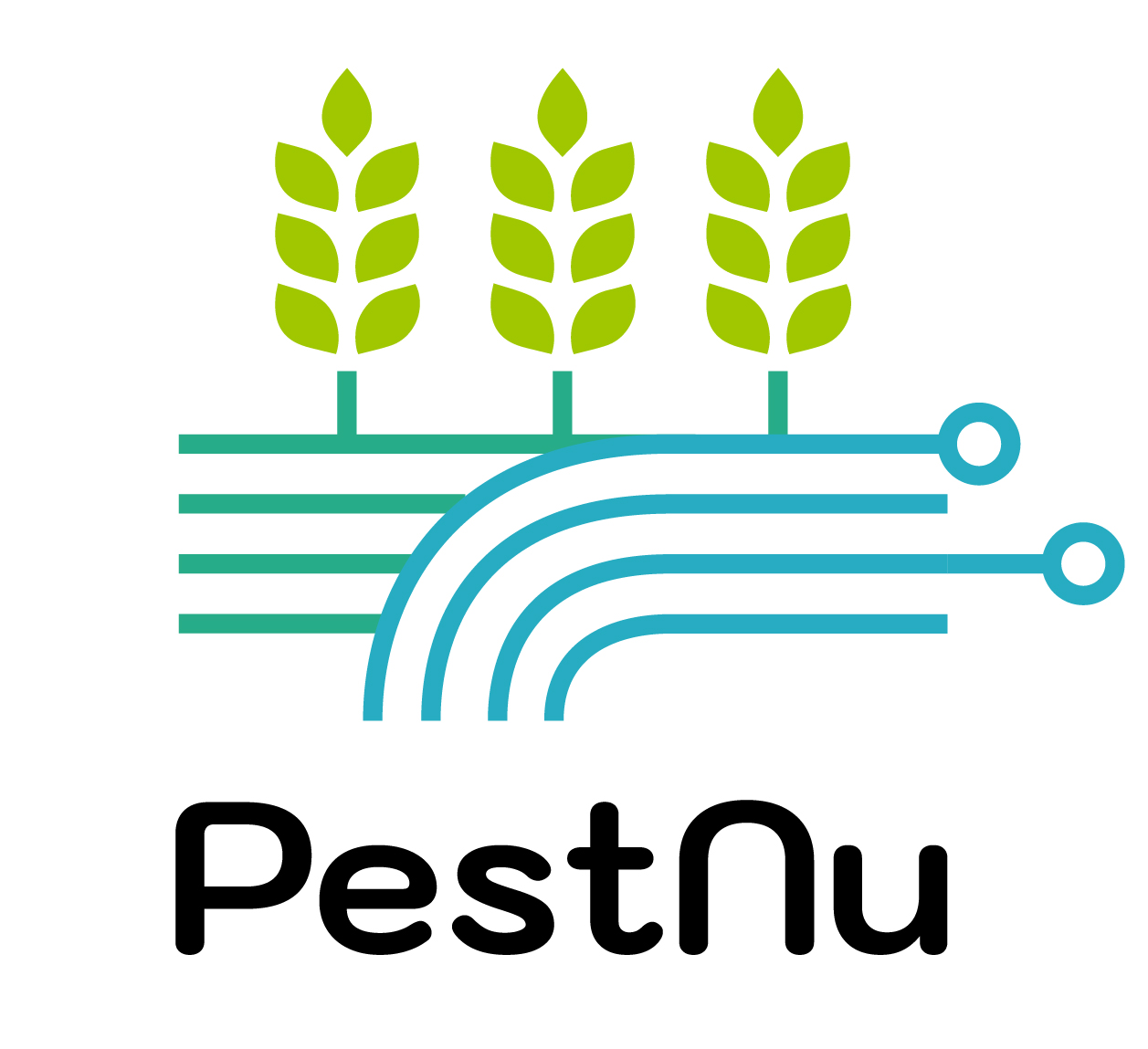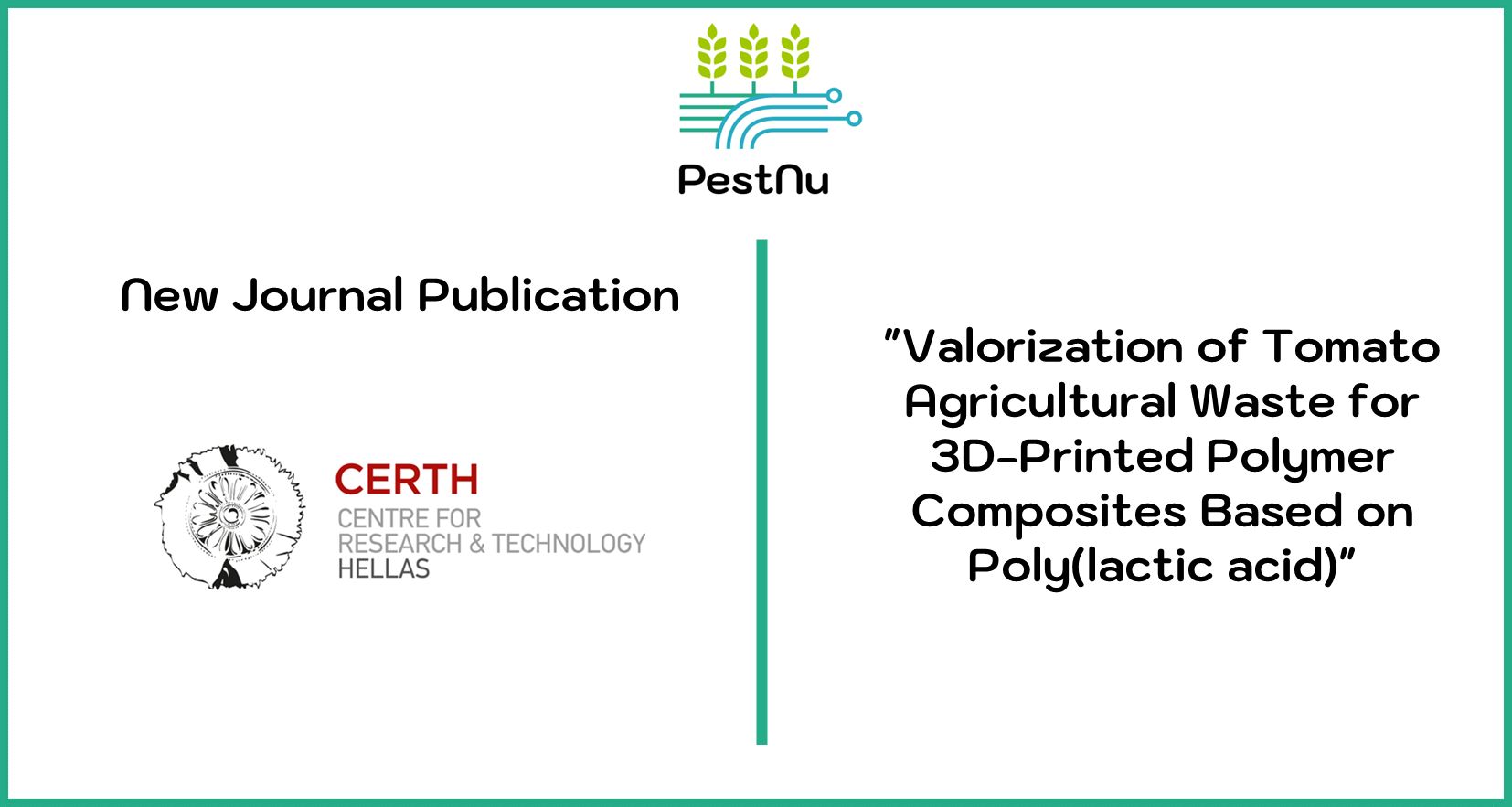We are excited to share a new, outstanding achievement accomplished by CERTH, within the context of PestNu project!
The article “Valorization of Tomato Agricultural Waste for 3D-Printed Polymer Composites Based on Poly(lactic acid)” has been published at Polymers Journal, by MDPI.
The authors of the article are: S. Pemas, D. Gkiliopoulos, C. Samiotaki, D. N. Bikiaris, Z. Terzopoulou, E. M. Pechlivanind its respective DOI is the following: https://doi.org/10.3390/polym16111536
The abstract and the keywords of the publication can be found below:
Abstract
Agricultural waste is a renewable source of lignocellulosic components, which can be processed in a variety of ways to yield added-value materials for various applications, e.g., polymer composites. However, most lignocellulosic biomass is incinerated for energy. Typically, agricultural waste is left to decompose in the fields, causing problems such as greenhouse gas release, attracting insects and rodents, and impacting soil fertility. This study aims to valorise nonedible tomato waste with no commercial value in Additive Manufacturing (AM) to create sustainable, cost-effective and added-value PLA composites. Fused Filament Fabrication (FFF) filaments with 5 and 10 wt.% tomato stem powder (TSP) were developed, and 3D-printed specimens were tested. Mechanical testing showed consistent tensile properties with 5% TSP addition, while flexural strength decreased, possibly due to void formation. Dynamic mechanical analysis (DMA) indicated changes in storage modulus and damping factor with TSP addition. Notably, the composites exhibited antioxidant activity, increasing with higher TSP content. These findings underscore the potential of agricultural waste utilization in FFF, offering insights into greener waste management practices and addressing challenges in mechanical performance and material compatibility. This research highlights the viability of integrating agricultural waste into filament-based AM, contributing to sustainable agricultural practices and promoting circular economy initiatives.
Keywords: additive manufacturing (AM); 3D printing; fused filament fabrication (FFF); filament; poly(lactic acid) (PLA); mechanical properties; tomato stem; circular economy (CE); agricultural waste; agricultural waste management
You can find the full article by following this link: https://www.mdpi.com/2073-4360/16/11/1536

